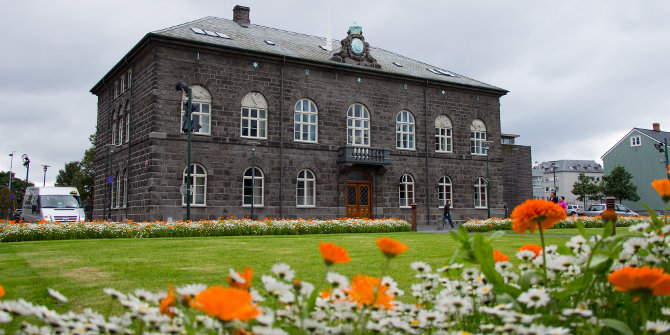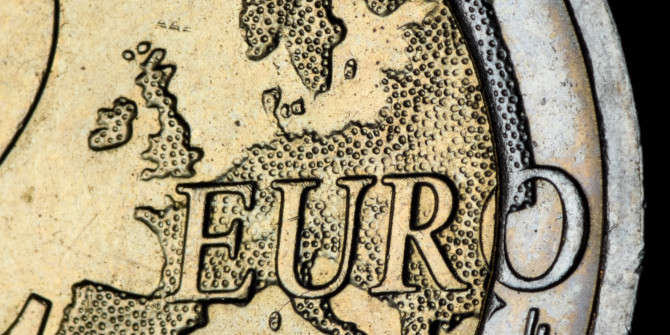Nilde Iotti was a resistance fighter during the Second World War who played a significant role in both post-war Italian politics and the European integration process. Simona Guerra examines her life and the impact she had on European democracy.
Leonilde, ‘Nilde’, Iotti (1920-1999) is a well-known political figure of Italian political history, who was also recently celebrated at the European level as one of its pioneers. Growing up in a patriarchal society, she fought for democracy, European cooperation, and the emancipation of women all her life. She joined the labour movement, as an activist, at a very young age, and two years after graduating in philosophy, in 1945, she was appointed regional secretary of the Union of Italian Women.
When women gained the right to vote in 1946, she was elected municipal councillor, and was appointed member of the Italian Communist Party (Partito Comunista Italiano: PCI) assembly. In the same year, when she was just 26 years old, she entered the Italian Parliament together with another 20 women deputies. In the words of the youngest, the 25-year-old Teresa Mattei, ‘we, the whole twenty-one, held each other’s hands, all supporting peace, even the representative of the Common Man Front’. Although these women had lived and been educated under fascist rule, in the 1940s and 1950s they were politically active and aided the work and establishment of their party and the democratic foundation of the Italian Republic.
Similarly, in Europe, Nilde Iotti influenced the work of the European Parliament. She was a member of the Working Group on European Parliament Direct Election; in the Conference of Presidents, she promoted the creation of an annual Conference of Parliamentary Commissions, dealing with European affairs, leading, decades later, to the Conference of Parliamentary Committees for Union Affairs (COSAC), now recognised by the European treaties; and she further introduced and organised meetings of the committees by policy field across parliaments, to develop dialogues and interparliamentary confrontation on common problems in the European context.
While research tends to stress the role of women in promoting the EU’s women policies, this case shows the active political agency of one of these early women for European democracy and provides evidence of their public contribution at the international and European levels. As well explained by Mechthild Roos, it is in the everyday policymaking and in the formal and informal procedures in this young legislative institution that we can better understand the work of both individual Members of the European Parliament, party groups, that were emerging at the time, committees, and the European Chamber, to also better understand the Parliament we know today.
Nilde Iotti in the European Parliament
Interestingly, by accessing the documents of the meetings, it is possible to see the role of Nilde Iotti towards a directly elected institution and its political role. The legacy of the war, her experience of the resistance fight, and the strengthening of democracy and its institutions guided her involvement in Italian politics as in European politics. Pro-European, although her party, the Communist Party tended to be Eurosceptic, she sat in the European Parliament as an appointed member of the Italian Parliament in 1969, and returned in the European Chamber that she helped to make directly elected ten years later, in 1979.
On Tuesday, 7 October 1969, Iotti intervened for the extreme left group to comment on the European budget. According to the Left members, the budget seemed to advantage the hegemony of the German great group of interests against the small ones. In her words, ‘the European Parliament [had] to gain more political power, even if it [did] not have any formal right. It [could] not continue to take note of the political right reality of Europe as imposed.’ Here, as in previous cases, the Parliament, despite an unelected and informal institution, pushed for changes, influence, representation, and transparency.
Iotti welcomed an extraordinary convocation of the Parliament in November, but also stressed as ‘absurd’ the fact that the Parliament was not devoting ‘any discussion, any act, any word… at the proposed conference on security in Europe.’ To her, that was necessary to bridge ‘the gap which divides today’s Europe and prepare one of the essential acts of a policy of coexistence in Europe and worldwide.’ In her words, the young European Parliament needed to take a more active political role, leaving, what she was perceiving, a simple spectator dimension.
Europe could not remain passive in front of the contemporary political developments, ‘do we want to accept forever that Europe is divided into two opposing military blocs, and that within the two we see the persisting fatal consequences of the implacable logic of the bloc regime?’ she asked, adding, ‘if we want to be Europeans, we must take part in the events of history and European culture, we cannot continue to be absent; the place we occupy and the authority we are exercising are as strong as the measure of our participation in the major European political debates’.
Unexpected Europeanism
Her Europeanism was unexpected. It was thanks to the opening started by Enrico Berlinguer in the Italian PCI that Iotti was one of the seven PCI deputies to sit in the European Parliament, the only woman. She would then sit in the Chamber for ten years, before being directly elected. The Italian Communist members were the only communists among the appointed members, and at the beginning they were more tolerated than welcomed. At the same time, they often proved to be more ‘European’ than their counterparts, with Altiero Spinelli appointed as Commissioner between 1970 and 1976. In some cases, Nilde Iotti’s speeches were reprimanded by Spinelli, who was reminding her that her interventions were not compatible with the ideology of the party.
Yet, Iotti still pursued an idea of Europe that was more international and coherent with her idea of democracy, and she maintained these positions also in her Italian parliamentary office. In her view, the Parliament had to represent the most important representative institution. She further supported more integration, beyond economic solidarity and cooperation, and the proposal of a collaboration of the European Parliament with national parliaments would see many years later the institutionalisation of COSAC. In her view, cooperation had to move beyond the Cold War antagonism and European integration had to move towards civic and social integration.
In 1971, at a meeting of her party on Europe, she presented a work on ‘National sovereignty and European institutions’ to explain how to develop a cultural, institutional, and political integration. When she was appointed President of the Lower House in Italy, in 1979, she gave her inaugural speech by stressing the ‘exceptional’ qualitative advancement of democracy at the European level with the direct elections across member states. At the national level, she further promoted a special committee on European policies and democracy, that she long valued and kept on promoting when in Brussels, and in Rome, until 1992, when she left politics after fifty years.
Note: This article gives the views of the author, not the position of EUROPP – European Politics and Policy or the London School of Economics. Featured image credit: Nilde Iotti and Palmiro Togliatti before 1964, unknown author (Public Domain). Banner image credit: CC-BY-4.0: © European Union 2022 – Source: EP





